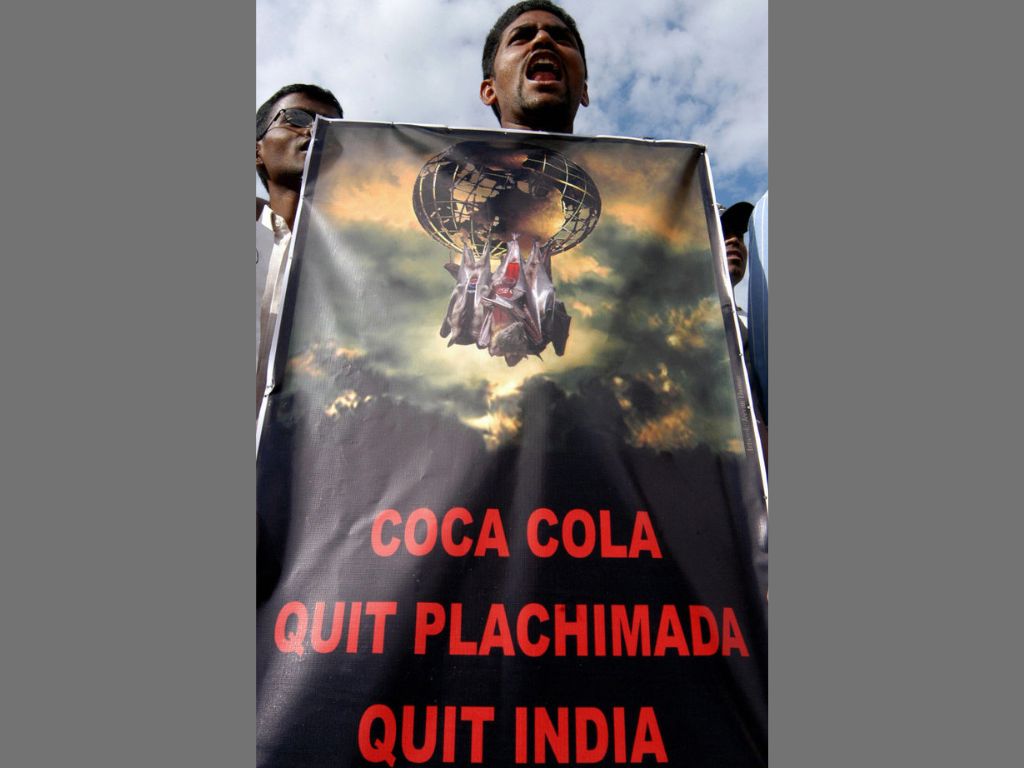- Friday, April 26, 2024

By: Shubham Ghosh
Eighteen years ago, local people of Plachimada village of the southern Indian state of Kerala had protested against a Coca Cola bottling plant for discharging toxic waste which had affected the local water resources and it saw the plant getting shut down.
This year, the residents have come out on the streets again to slam the company’s sponsorship of the ongoing UN Climate Change Conference or COP27 in Sharm el-Sheikh in Egypt where countries have come together to take action towards achieving the world’s collective climate goals.
Did you know? @CocaCola – the WORLD'S LARGEST plastic polluter – is a sponsor for COP27. 🤯🤯
Demand your leaders hold such polluters accountable for their contributions to the climate crisis. #COP27 pic.twitter.com/4kcPAXK6TJ
— Greenpeace Africa (@Greenpeaceafric) November 17, 2022
According to a report by The Indian Express, the Coca-Cola company has been named as the worst plastic polluter for five years running, a global brand audit report by ‘Break Free From Plastic’ has said.
In Plachimada, a resident who named himself Thankavelu said that the villagers were angry because Coca Cola, which had polluted their water, is sponsoring COP27, Al Jazeera reported.
“Criminal Cola polluted our water and the same company is now sponsoring COP27. That’s why we are extremely angry,” he said.
Thankavelu was one of the many protesters who burned Coca-Cola company’s symbols in front of the defunct plant which is run by Hindustan Coca-Cola Beverages Limited, an Indian subsidiary of the US-based company, the report added.
The protesters’ whose Anti-Coca Cola Struggle Committee has been seeking compensation from the company for the last two decades for the environmental damage caused but to no avail.
Twelve years ago, a high power committee mandated by the government of Kerala found evidence of over-extraction of groundwater and reckless disposal of sludge containing lead and cadmium, the Al Jazeera report added.
“It is evident that the damages caused by the Coca-Cola factory at Plachimada have created a host of social, economic, health and ecological problems,” the report said.
The community in the village comprises mostly landless agricultural workers who relied on local water sources for basic needs, such as drinking, cooking, and washing.
But with the quality of water going down and local authorities saying that it was not suitable for domestic use, the local people had to resort to more arduous task of carrying water containers from further areas.
The community of mostly landless agricultural labourers such as Thankavelu relied on the local well for basic needs including drinking, cooking and washing. As the water quality deteriorated and local authorities declared it unsuitable for domestic use, they had little choice but to carry weighty jerrycans from further afield.
Even after the government started distributing water to the area and a pipeline was built, the residents had to shell out money for the installation of the pipeline and provision of water.
KV Biju, the convener of the Anti-Coca Cola Struggle Committee, said many people contracted an inflammatory skin disease while there were others who abandoned the area and their homes.
The group also wrote to UN secretary-general Antonio Guterres on November 4 requesting the company’s removal from the COP27 sponsorship.
“This conference is for environmental protection and Coca-Cola are the polluter, not only here but in many places in India,” Biju was quoted as saying by Al Jazeera.
“We are requesting that the UN take the reasonable step of removing the company from the climate negotiations.”
![]()